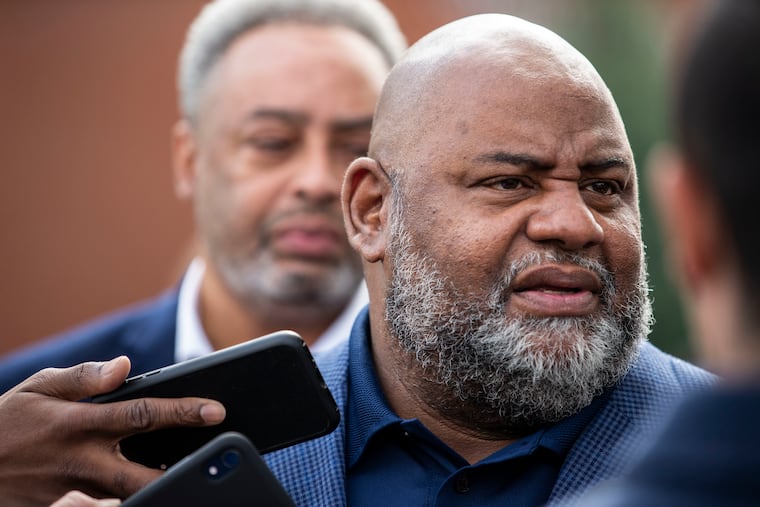Willie Brown, longtime head of SEPTA transit workers union, has stepped down
Brown served as president of Local 234 from 2013 to 2021 and previously from 2008 to 2010.

Willie Brown, longtime president of Transport Workers Union Local 234, has stepped down as the president of SEPTA’s largest labor union.
Brown, 58, resigned Friday as the president of Local 234, he confirmed. Brian Pollitt, his executive vice president for 10 years, replaces Brown as president.
Local 234 represents about 5,000 operators of buses, trolleys, and rapid-transit trains in the city, as well as mechanics and others.
Brown is leaving so he can focus on his new role leading the Transit, Universities, Utilities, and Services Division of the Transport Workers Union of America. He was elected to that post at the union’s international convention in September, said Jamie Horwitz, spokesperson for Local 234.
“I’m not retired. I’m still working,” Brown told The Inquirer. “This is a promotion. That’s what it was for me. I’m trying to give [the Transport Workers Union of America] my attention.”
A Philadelphia native, Brown has been in public transportation for more than 30 years, starting as a trolley operator in 1987. Alongside Pollitt, Brown ascended through the ranks of the union and was first elected president in 2008. After losing a reelection bid in 2010, Brown was reelected in 2013 and served until Friday.
In his time as the union’s president, Brown was known as a tough negotiator, pushing back against the transit authority to obtain favorable contracts for his members, even if it meant a strike.
In 2009, Brown led the union on a strike that shut down city transit for six days and earned him the enmity of political leaders and many commuters.
“I understand I’m the most hated man in Philadelphia right now,” he said at the time.
Then-Mayor Michael Nutter was particularly harsh, saying Brown had ambushed riders and was “insane” for rejecting an earlier SEPTA offer he called generous amid the Great Recession. Brown, an equally forceful man, retorted, calling Nutter ”Little Caesar.”
Ultimately, the union got SEPTA to increase pension contributions, along with raises and a bonus. But Brown was unseated as Local 234 president in 2010, losing by about 200 votes. His opponent said members were frustrated with the strike and how the union was portrayed in the news.
After being voted back in as president in 2013, Brown averted a strike in 2014, but the union walked for six days in 2016, in part to end a cap on retirement benefits.
And during the most recent contract negotiations, Brown made it clear that the union was willing to strike once again, and union members unanimously voted to authorize a strike.
A strike was averted when, two days ahead of the contract’s expiration, a tentative agreement was reached on a contract that included annual raises, parental leave, and a one-time pandemic hazard bonus, benefits that Brown and Pollitt had refused to budge on during talks.
For Brown, it was crucial he stayed on as president until the union reached an agreement on the new contract.
“I didn’t want to leave before that,” he said.
Brown will be based out of the Transport Workers Union of America headquarters in Washington, according to the union’s statement. He will continue to live in Philadelphia, commuting to and from Washington, Pollitt said.
Brown will lead a division representing bus and train operators, engineers, mechanics, supervisors, cleaners, ticket agents, and other positions in cities like New York, San Francisco, and Philadelphia.
“Whenever you guys call, I will be there,” he said at the union’s executive council meeting Friday, according to a news release.
As he takes on the new position, Brown looked back on his tenure at Local 234 with pride, saying he was happy to have avoided the pitfalls that often come with unions.
“I’m just happy we were able to keep up with the times,” he said. “I pride myself on trying to keep above all the things that you can fall into as a union. I’m very proud of that.”